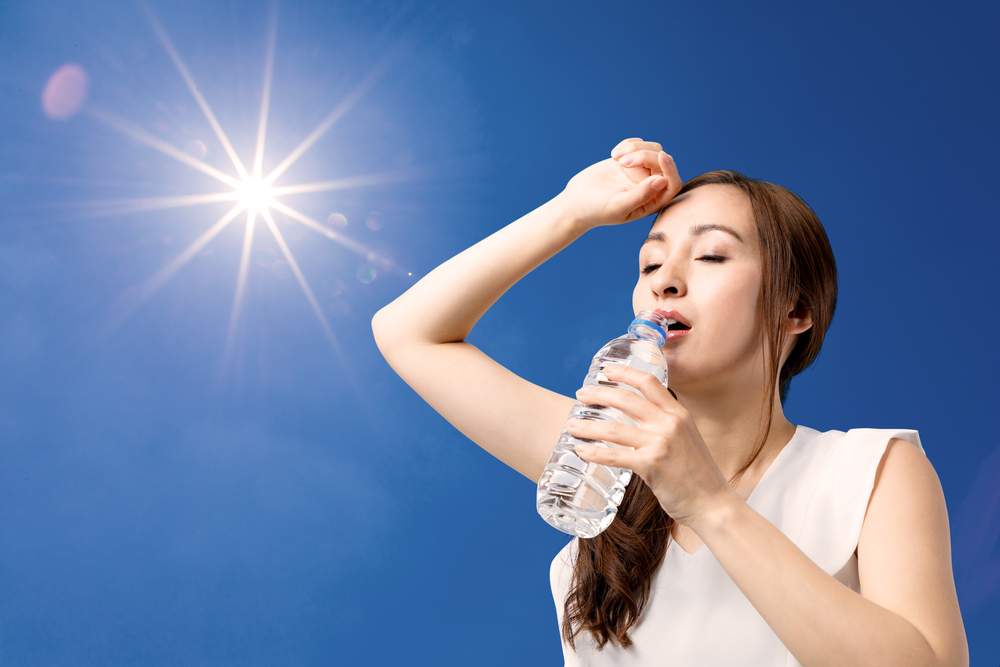Fluids are important to keep the organs in your body active and healthy. This is more crucial during the summer months, as the stifling heat can increase your risk of dehydration.
Dehydration is a condition that you should nip in the bud. Several cases can result in an unwanted trip to the hospital for IV fluids. What’s worse, dehydration could sometimes lead to nervous system problems and kidney damage.
Prevention is your best defense against dehydration. On hot summer days, keep these suggestions in mind:

- Avoid Going Out on the Hottest Parts of the Day
During hot days, refrain from leaving your home unless the activity is necessary. Stay indoors preferably in an air-conditioned environment. Make sure that your cooling unit is functioning properly, especially when there’s a heat wave in your area. If you need assistance in optimizing this appliance, contact a reliable HVAC technician for proper air conditioning unit maintenance and repair.
If you have no air conditioning system at home, don’t fret. See if you can head to the nearest public library, movie theater or shopping center.
- Drink Plenty of Water
Daily fluid intake recommendations vary by sex and age. Begin by drinking a cup of water every morning when you get out of bed or a glass before hitting the hay at night. Drink another glass with every meal. If you’re working out, drink one or two cups. The important thing to remember here is to drink fluids throughout the day to ward off dehydration.
When the weather is hotter than usual, refrain from waiting until you’re thirsty to drink. By that time, you are already slightly dehydrated. Aim to sip water through the day as much as possible.
If you’re not a frequent water drinker, try infusing flavor by adding a few simple ingredients. Fruits, such as berries, oranges, lemons and limes, improve the taste without preservatives or artificial sweeteners. The naturally enhanced flavor can help you drink more fluids than you usually do.
Alternatively, consider giving coconut water a shot. This mineral-rich liquid is rich in calcium, sodium, magnesium and potassium. Coconut water replenishes electrolytes and lost fluids from hot climates and exercise quickly.
- Check for Signs of Dehydration
Does your skin feel sensitive, itchy, inflamed, irritated and dry? This is a sign of dehydration. Are you feeling fatigued or dizzy or experiencing a headache? These are red flags, too. Rapid breathing, dark yellow urine and muscle cramps are others.
If you are experiencing one or more symptoms, the simple solution is to rehydrate and get out of the heat. You can also consider small over-the-counter options, such as Hydralyte and Pedialyte, which balance out sodium and electrolytes with dehydration. If you feel severely dehydrated, don’t hesitate to call 911.
- Eat Foods with High Water Content
Approximately 80 percent of a person’s fluid intake comes from drinking water. The remaining 20 percent will come from food. Whole fruits and vegetables contain some water. When you’re shopping in the supermarket, make sure to grab these water-rich fruits and vegetables:
- Grapefruit
- Cucumber
- Broccoli
- Celery
- Strawberry
- Tomato
- Spinach
- Radish
- Watermelon
- Pepper
- Cauliflower
These foods contain 90 percent water or higher. What’s more, many of them are rich in vitamins and minerals that will keep your body healthy.
- Dress for the Weather
Wear loose-fitting and light clothing that allows your skin to breathe during hot summer days. Avoid dark clothes, as they tend to absorb heat more. If possible, stick with lighter shades.
If you need to go out, put on a wide-brimmed hat. This will keep your head cool. Also, apply enough sunblock on your skin to avoid sunburn, which can bump up the temperature of your skin and make staying cool a lot more difficult.
- Avoid Drinks Containing Caffeine, Alcohol and Lots of Sugar
Some liquids can actually work against hydration. Beverages, such as smoothies, energy drinks, sweet tea, hard liquor, wine, beer, sugary sodas and coffee are all culprits. They are full of sodium, sugar and other unwanted ingredients that take out water from your tissues. Consider switching some of these drinks out daily or rehydrating with more water for each dehydrating beverage you consume.
- Choose Water When You’re on a Flight
Flights can dehydrate your body. Airplanes are well-known for their low-humidity air. This contributes to low hydration when you arrive at your destination. After going through security, pack an empty bottle with you in your carry-on. Then, fill this container with water.
When you’re in the airport, skip the vending machines. Instead, ask the flight attendant for water when the beverage cart passes by mid-flight.
This summer, stay hydrated, cool and safe. Follow these tips to avoid dehydration that can cause serious health problems.
Leave a Reply